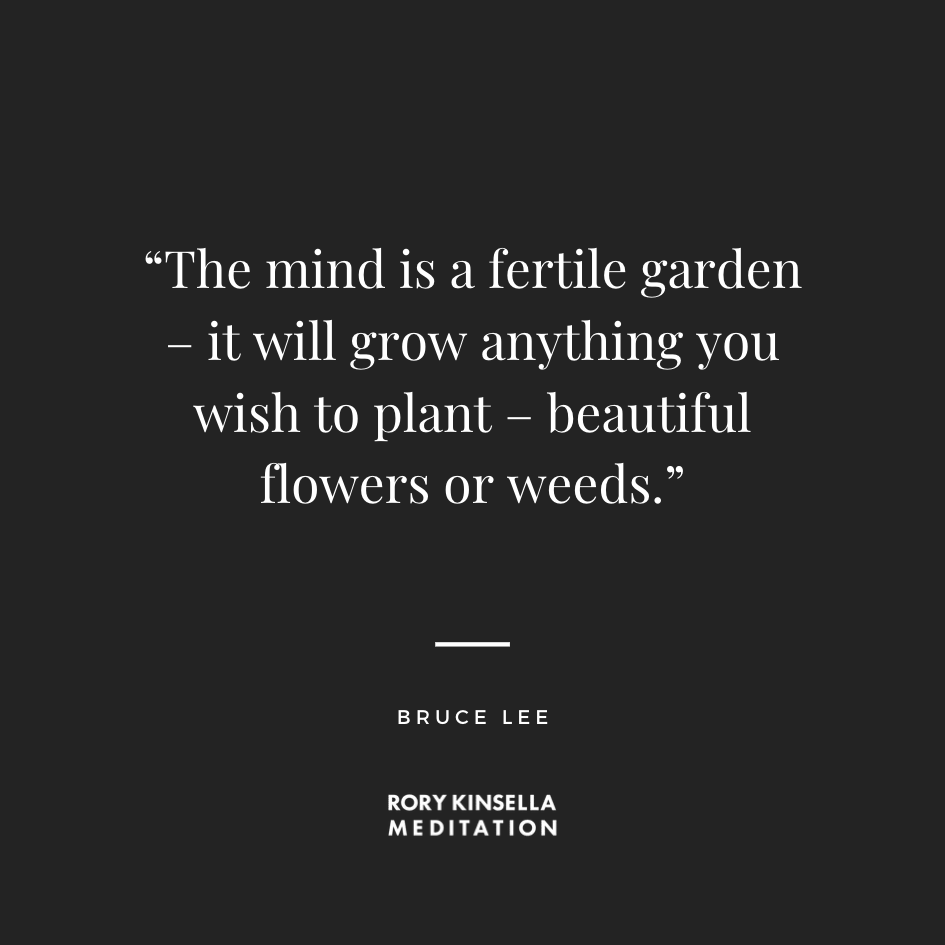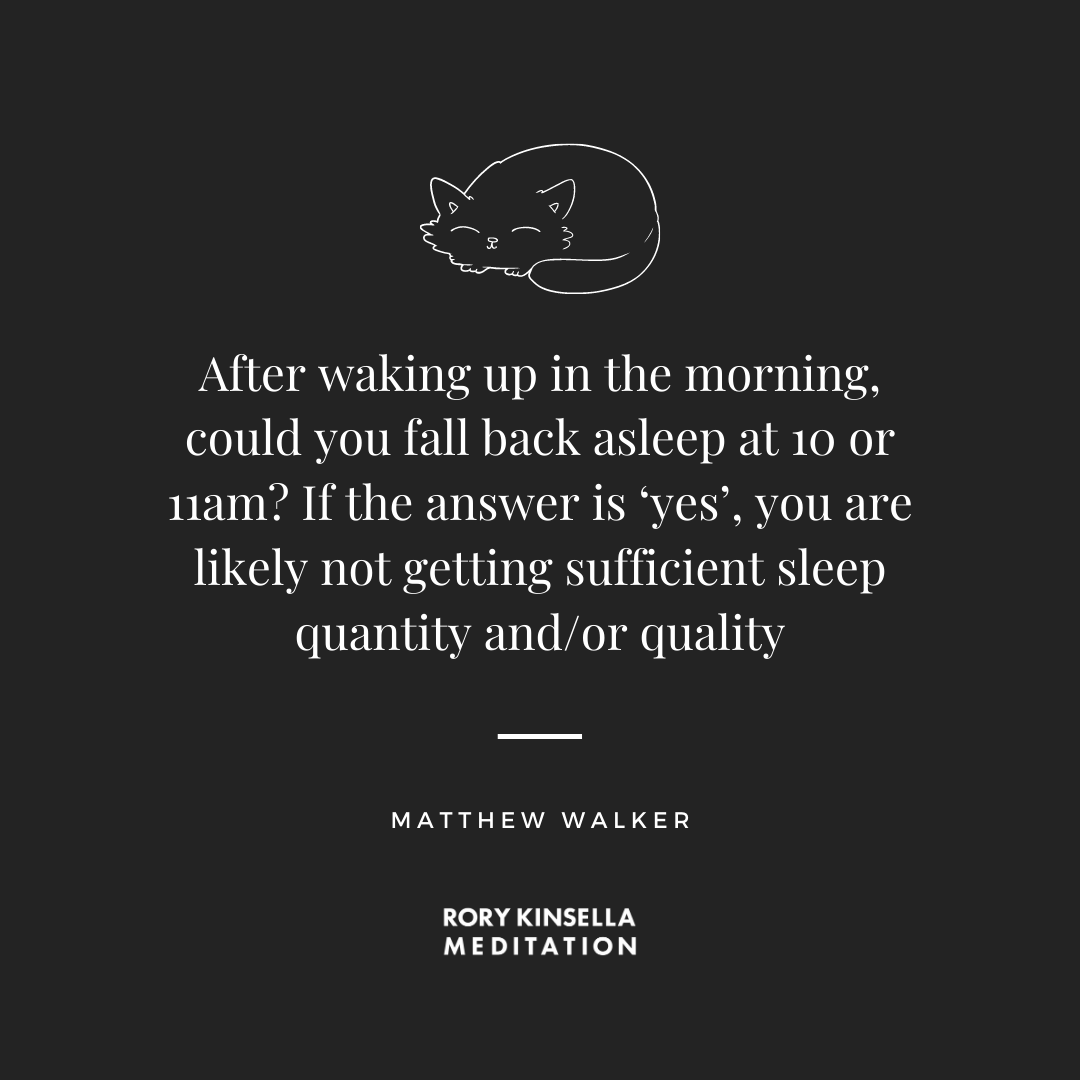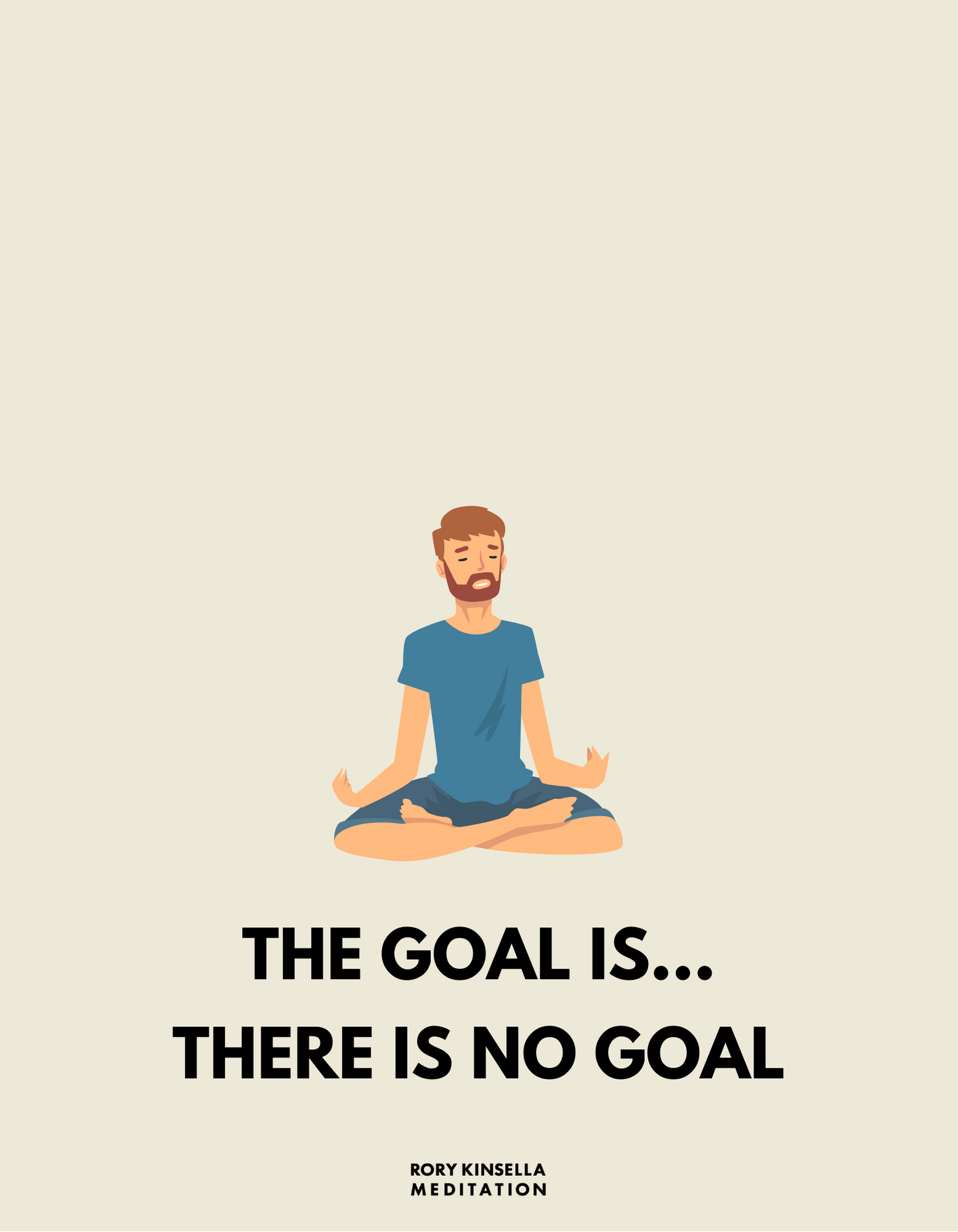Water the Roses: How to Nurture More of What You Want
Following our January theme – Tapasya: The Vedic Art of Delayed Gratification – our Vedic theme for this month is: Water the Roses: How to Nurture More of What You Want.
There’s a story that gets told in Vedic circles about the importance of watering the flowers and not the weeds.
A man is in his garden, hosing his prized roses on a warm summer’s day.
He’s enjoying the sight of the flourishing roses when he notices a clump of weeds over in a corner.
Annoyed that they’re spoiling his garden, he walks over to inspect them, taking his hose with him. He stands there complaining, all the while watering them with the hose.
He’s back with his hose a few days later only to see the weeds have grown further.
Again, he bemoans the weeds – all the while watering them unintentionally.
This goes on for some time until he realises the whole garden has overgrown with weeds and his roses have wilted away.
The water in this analogy is our attention – the more we focus on the negative, the more of it we get.
If instead, we pour the water of our attention on the things we love, we will get more of them.
For the month of February, see if you can spend more time thinking about things you want more of.
How? Avoid dwelling on the negative, especially things that are out of your control. And regularly remind yourself of what your like about your life.
Something I’ve dabbled with in the past and will try again in February is a gratitude journal.
The simplest approach is to write down (somewhere, anywhere!) three things you are grateful for – either morning, evening or both.
You can ask yourself a question like: What three things am I grateful for today? And why?
Or if it’s at the end of the day: What was my favourite moment today?
You needn’t write a novel, just a few sentences is enough.
As well as being ancient yogi-approved, studies have also found that feeling and expressing gratitude has a positive effect on the brain because it encourages us to focus on the good things in life. Gratitude can also promote a sense of contentment and fulfilment.
It reminds us of what’s good helps nurture more of the same.
Happy gardening.
Rory
How to practise Tapasya: The Vedic Art of Delayed Gratification
With Vedic Meditation, we sit for 20 minutes morning and evening to increase our adaptation energy which helps us cope more successfully with what life throws at us each day.
Once we’re up and running with a daily practice, we can start exploring more advanced spiritual techniques and practices.
With Tapasya (pronounced Tapas), we are seeking to increase our worthiness – or our deserving power as it is called in the Vedic terminology – to achieve specific goals and desires.
Tapasya means “heat” and can be thought of as an internal spiritual fire which we can stoke outside of meditation by practising discipline in various areas of our lives.
In the Vedic understanding, our external world and conditions are a direct reflection of our inner work.
If we feel love and abundance on the inside, that is what the world will reflect back to us.
If we cultivate effortlessness and frictionlessness with meditation, that is what we will get more of outside meditation.
RELATED: Tapasya: Offering our preferences into the sacrificial fire
With Tapasya, we give up things we like doing in order to attain things of greater value – a kind of ancient spiritual approach to delayed gratification.
The famous (and disputed) experiment into delayed gratification is the Stanford marshmallow experiment. It was a psychological study conducted in the late 1960s and early 1970s with the aim of understanding the role of self-control in children's development.
Researchers presented young children with a single marshmallow and told them that they could either eat the marshmallow right away or wait for a short period of time, during which the researcher would leave the room, and then receive an additional marshmallow as a reward for their patience.
The researchers found that the children who were able to wait longer for the second marshmallow ended up achieving better life outcomes, such as higher SAT scores and lower rates of substance abuse, compared to those who were not able to wait as long.
RELATED: How to use meditation to stop drinking
To cultivate self discipline for ourselves, we could for example refrain from eating sugar in order to feel more healthy or achieve a certain weight goal.
Or we could get up at dawn each day with the goal of getting promoted at work.
In the Vedic terminology, we refer to this as “surrendering preferences”.
Each time we do the practice, it is like a personal sacrifice we make to our greater cause. It helps prove to both the universe and to ourselves that we are worthy of the goal we seek. It helps cultivate the conscious state that is worthy of the greater abundance or responsibilities we desire.
How to practice tapasya
Pick a goal or desire you would like to be fulfilled
The goal must benefit both you and others. It can’t be either too selfish or selfless and mustn’t bring harm to you or anyone else.
For example, reaching a target weight would be good for your health and good for others who rely on you being health (family, employers etc)
Winning the lottery would only be good for others if you included helping others in it – eg, win $100k on the lottery to help fund a school in India etc
Visualise a signal moment
Once you have your goal, pick a signal moment – visualise something that would show you that you have attained your goal.
For example for a weight goal, you could picture the sight of your feet standing on the scales showing your target weight and the accompanying feeling of satisfaction/energy/achievement.
Pick a preference to be surrendered
You preferred thing to give up can be related to your goal, but doesn’t need to be.
For example, you could abstain from sugar if you had a weight goal. But you could also get up at dawn each day or take cold showers. We are stoking our internal spiritual fires with discipline to generate the state of consciousness worthy or deserving of your goal.
Each time you surrender the preference, mentally ascribe it to the goal.
So if you get out of bed at dawn, when you’d much prefer to lie in, bring your signal moment to mind to mentally notch this up to your goal.
A condition of this is that we surrender things “willingly”, eg when we drag ourselves out of bed at the crack of dawn, we shouldn’t be complaining about it!
Let go
Once we’ve performed our tapasya, we surrender all attachment to the outcome. We don’t hold on to the goal and crave it, but instead let it go and continue on with our day. We specifically let go of attachment to the timing or method of the fulfilment.
If you plant a seed and dig it up every few minutes to check on it, it will struggle to grow.
Rory Kinsella meditating at dawn in North Bondi (when he’d rather be in bed!)
Similarities to other traditions
Tapasya is a Vedic concept that involves self-discipline and spiritual purification through physical and mental practices such as meditation, fasting or abstinance. It is often seen as a way to gain spiritual strength and purify the mind and body.
Similarly, in Islam, Ramadan is a period of fasting, prayer and reflection. Muslims abstain from food, drink and other pleasures from sunrise to sunset. The purpose of Ramadan is to focus on spiritual discipline and devotion to God and to demonstrate solidarity with those who are less fortunate.
In Christianity, Lent is a period of fasting, repentance and spiritual discipline observed in the 40 days leading up to Easter. During Lent, believers are encouraged to fast, pray and give alms in order to draw closer to God and prepare for the celebration of Jesus’s resurrection at Easter. Like Ramadan and tapasya, Lent is a time for self-denial and spiritual reflection.
Origins
Tapasya is an ancient practice that features in many of the classic Vedic texts, such as the Mahabharata, which includes the Bhagavad Gita, one of the most sacred Indian texts.
In the epic tale of a war between rival sets of cousins representing good and evil, there are many examples of people practising Tapasya.
In a famous example, Arjuna, the mightiest warrior of the good side, sets a goal of receiving divine weapons – devastras – from the god Shiva.
According to the story, Arjuna wanted to become the greatest warrior in the world, so he retreated to a forest to perform tapasya. This involved fasting, meditating and praying for a long period of time, with the goal of achieving spiritual enlightenment and divine favour. Eventually, Shiva appeared before Arjuna and granted him the boon he had requested, making him the most skilled warrior in the world.
His goal was to become the greatest warrior on earth, help defeat his evil cousins, protect his family and rid the world of evil – so his goal was good for both himself and others.
To increase his deserving power and show the universe (and its presiding gods) the strength of his intentions, he ramped up his practice until the gods couldn’t ignore him.
The text says: “Arjuna did a tremendous penance by standing only on one leg and concentrating his gaze upon the blazing sun. Arjuna's penance generated so much of heat that all the living creature of the three worlds were unable to bear its scorching heat. All the living creatures of the three worlds went to to the gods to to seek help. The deities became very impressed by Arjuna's penance. They went to lord Shiva and requested him to bless Arjuna.”
We don’t need to stare at the blazing sun and we probably shouldn’t be desiring weapons, divine or not, but we can employ this practice to cultivate discipline and generate deserving power in service of bringing our goals and desires to fruition.
The added benefit is that the things we pick to surrender will likely be things that are bad for us anyway.
For 2023, mine will be to surrender my preference to sleep in by getting out of bed at dawn to practice yoga and to forgo much of my social use. What will yours be? I will keep my goal to myself, as should you, so as not to dilute it.
—
Want to know more? Get in touch.
Rory Kinsella is a writer and Vedic Meditation teacher based in Sydney, Australia. A former hard-drinking musician and journalist, he quit alcohol in 2017 and has written widely about his experiences, including in the Sydney Morning Herald.
He is the creator of the Wise Monkey Way online program to help people use meditation to stop drinking, has contributed meditations to apps such as Insight Timer and Meditation Studio and has taught meditation at some of Australia’s biggest companies.
He teaches an effortless style of meditation using a mantra that allows the mind to move beyond thoughts to a place of stillness within.
Meditation and positivity: What seems to us as bitter trials are often blessings in disguise
What seems to us as bitter trials are often blessings in disguise. – Oscar Wilde (Oct 9 2020)
I talk about this idea of looking for silver linings a lot when I teach, but love this poetic expression of it.
It’s worth reminding ourselves of this whenever we’re feeling overwhelmed or defeated by events.
In the bigger picture, we’re all evolving to higher expressions of ourselves and that evolutionary process is accelerated by huge and disorientating change.
But take comfort in the fact that there is method in the madness – you may not see until after the fact, but it’s there nonetheless.
Related articles:
Vedic Meditation Bondi Junction
After waking up I fall straight asleep again
I recently read the excellent book by neuroscience professor Matthew Walkers: Why We Sleep: Unlocking the Power of Sleep and Dreams.
In it, he asks the following question:
“First, after waking up in the morning, could you fall back asleep at ten or eleven am? If the answer is ‘yes’, you are likely not getting sufficient sleep quantity and/or quality.
“Second, can you function optimally without caffeine before noon? If the answer is “no,” then you are most likely self-medicating your state of chronic sleep deprivation.”
I think many of us at different stages have been able to answer yes to the first and no to the second.
Walker explains that humans need more than seven hours of sleep each night to maintain cognitive performance.
After ten days of just seven hours of sleep, he says that the brain is as dysfunctional as it would be after going without sleep for twenty-four hours.
And if you’ve ever stayed up for 24 hours, you’ll know how loopy you start going.
Reading this made me rethink my own sleep schedule – in the past I often prided myself on being to have only six hours.
But Walker says that studies show that those of us getting just five to six hours each night are 200 to 300 percent more likely to suffer from calcification of coronary arteries over the next five years, which plays a significant role in heart disease.
So what can we do?
One key piece of advice Walker offers is to give yourself enough “sleep opportunity” each night. That means getting to bed at a reasonable time, ideally before 10pm.
If you stay up till 11 or later, you enter a new circadian cycle which makes you feel awake for hours more. Night owls will know this all too well.
The other thing you can do? Meditate regularly! Studies show that regular meditators have enhanced sleep, including enhanced REM sleep which helps emotional regulation.
Ready to learn to meditate properly? Learn about Meditation Sydney
What's the goal of meditation? There is no goal
Through our upbringing we’re conditioned to always be trying to achieve a particular outcome or goal.
From school to work to sport and hobbies, there’s usually a defined marker of success.
But in meditation there is no goal – we’re not trying to achieve a state of peace or tranquility beyond thought.
That might be an outcome of meditating but it’s not the process.
We don’t try to clear our mind of thoughts or have a deep experience.
Instead, we hold an intension lightly. We intend to think our mantra whenever we remember to.
But we’re almost guaranteed to forget it!
In fact, it’s designed to be forgotten.
Its job is to relax us and take us away from regular thinking so that our mind is able to unwind thoughts and stresses it has been holding onto.
Sometimes, as a by product of this, it’s able to fall silent – but the price of these deeper meditations is the shallower ones.
If we have a goal at all, it is to sit down to meditate every day.
Once we’ve closed our eyes, it’s time to drop all expectations and our habitual outcome orientation.
What next? Learn Vedic Meditation in Bondi Junction.
How to improve your sleep through meditation
For many of my Vedic Meditation students, sleep is one of the first things that improves when they start to meditate. Like Cooper in the quote above, my sleep wasn't terrible or anything but I I'd often wake up really early and not be able to get back to sleep. It would be 4am, I'd wake up and before I knew it my mind would be racing trying to solve whatever the main issue from the day had been.
This would go on for half an hour or so until I realised what I was doing and tried to get back to sleep. But we all know what happens when you try to fall asleep. Since I started meditating I've found that I still wake up early and the main issue of the day still comes to mind, but rather than going to town with it, I can let go of it and fall back asleep.
The reason meditation makes this possible is that it neutralises all the stress and anxiety connected with these thoughts when you meditate during the day. With the stress removed from the issues, you don't forget about them, but they no longer have control over your attention. You're free to deal with them appropriately during waking hours. At night you're free to head back to the land of nod.








